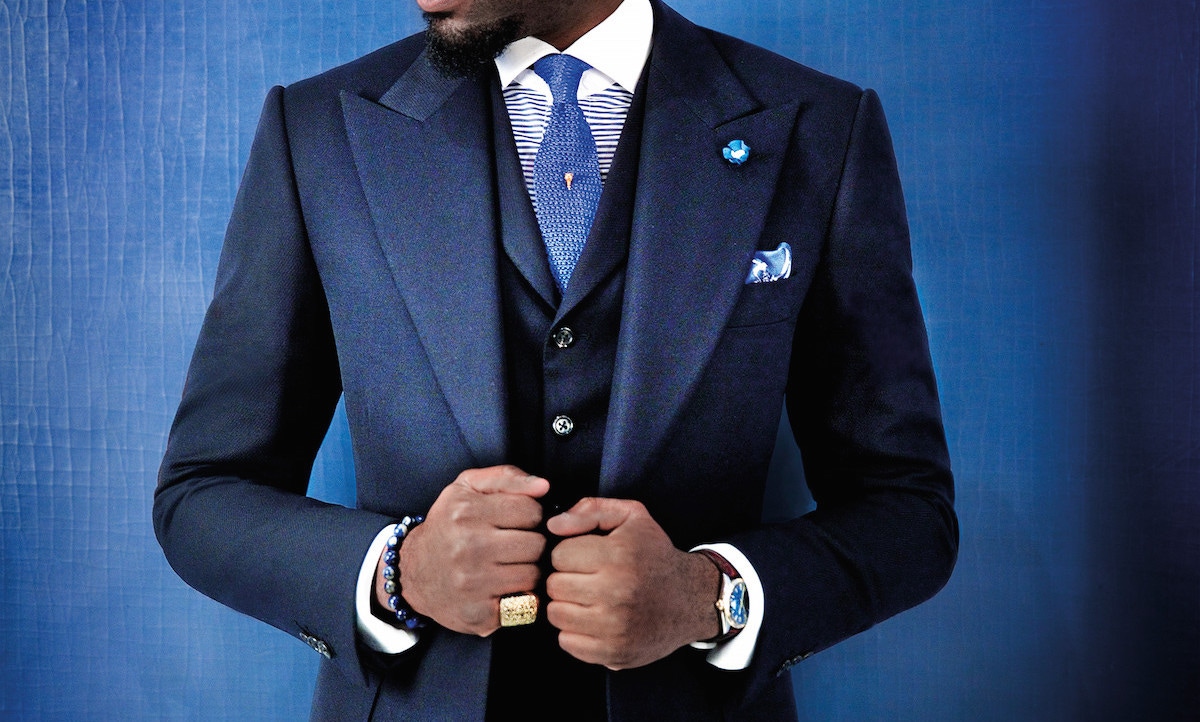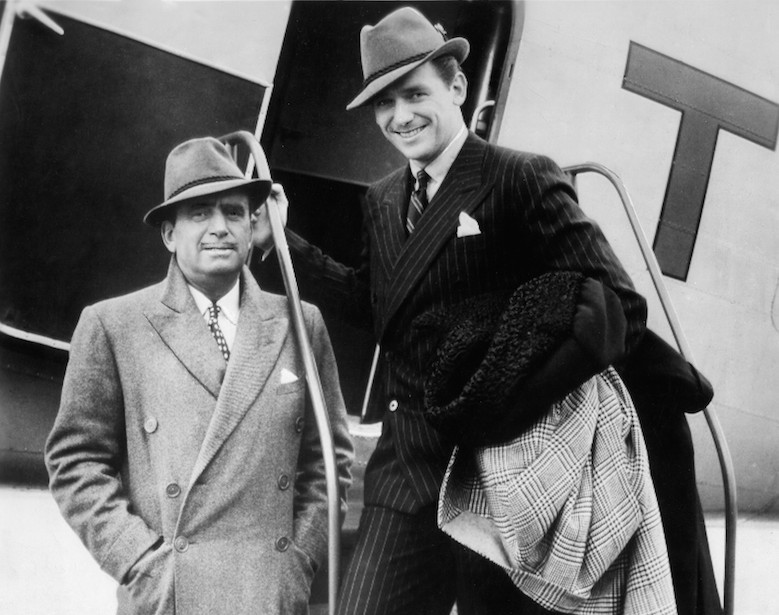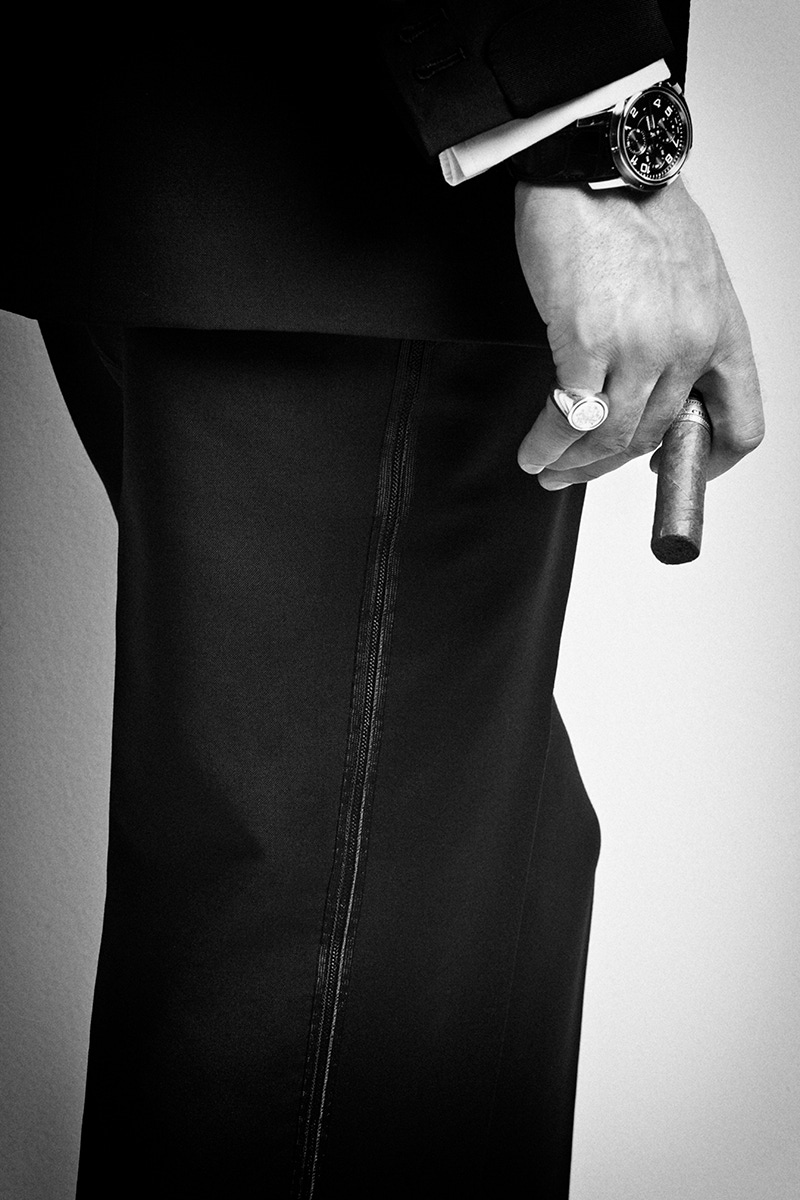The Messiah of Dystopia | Andrew Lincoln
Andrew Lincoln is polite, generous and decent to a fault. In other words, a good man. And as strange as it might seem to fans of television mega-hit The Walking Dead, he doesn’t need to carry a Colt .357 and a machete to convince us. Lincoln’s life changed the moment he was cast as the blood-soaked zombie-slayer Rick Grimes, but, he tells wei koh, while fame can be chimerical and overwhelming, he’s just trying to enjoy the ride...

The horizon fractures the sky and land. And from it a man walks forward. His gait, his lean, raw-boned frame immortalised in innumerable battles. His face scarred and remade hard through myriad acts of anguish. He has lived and died a hundred times in the last six years, and each time he has returned to us transformed as a more perfect leader. He is the Messiah of Dystopia and Moses of the Wasteland, leading the last remaining tribe through the parted waves of insanity in a world in which order, compassion and frailty are anathema. He walks towards us, and then miraculously breaks into an infective grin, saying, without a hint of southern twang: “Welcome to the Cotswolds.” And you realise it’s not Rick Grimes, the protagonist of the world’s most-watched television programme, The Walking Dead, but the affable London-born, Bath-raised, Royal Academy of Dramatic Arts-trained actor who plays him, Andrew Lincoln. (For those unfamiliar with rural southern- England geography, the Cotswolds do not look like the setting of the zombie apocalypse. They look like the Shire in The Hobbit.) Even 30 minutes later it’s something of a mind-fuck, because despite being kitted out in largely Grimes-like Western shirt and jeans (minus the Colt Python and machete), what’s troubling the slayer of zombies and the saviour of humanity is the question of how best to mix milk and tea. “I’ve always been taught it’s the milk first,” Lincoln says, beatifically and eruditely, before adding, with typical diplomacy: “Although I tend to defer to the regional practice depending on where I am.”
Let’s back up. Who the hell is Rick Grimes? Well, if you’ve been living in a cave, practising some arcane form of mystical asceticism, lifting rocks with your dick, eating gnats and chanting to the moon, we should recap. Father, husband, killer, leader, friend, brother, monster, messiah: Rick Grimes is all of these things and he is more than these things. If you were to combine the rationalist humanist philosophy of Jean-Jacques Rousseau and the visceral transcendence of the post-death of God, Übermensch from Friedrich Nietzsche’s Thus Spake Zarathustra, then parachuted him into the zombie apocalypse armed only with his skinned bloody knuckles, his Colt .357 Magnum, his red-handled machete, the unceasing desire to protect his family, and a resilience found not in one in one million but one in one million-million men, you would have Rick Grimes. Because Rick Grimes was not so much born from the fecund imagination of comic-book genius Robert Kirkman and brought to television reality by the visionary director Frank Darabont. Rather, he was manifested into being by the collective desire of global audiences for a hero that railed against the prevailing trend for anti-heroism and reconnected us with an ancient mythological archetype.
Accordingly, Grimes represents something more than the single most compelling screen hero to emerge in a decade. He represents a return of the Joseph Campbell Hero with a Thousand Faces-type saviour of the universe. Cue a Queen soundtrack and think Prometheus, Buddha, Jesus of Nazareth, Luke Skywalker. And it couldn’t have come at a better time. Because we’ve been in the wilderness, deprived. Shivering loose-jacketed against the cold and starving for the return of the archetypal hero. Says Lincoln: “Ever since The Sopranos, there’s been this legacy for subversive characters.” And gazing at the litany of contemporary television’s most popular protagonists — everyone from the matricidal Antigone with an XY chromosome Jax Teller in Sons of Anarchy to the murderous, corrupt, pathological Vic Mackey in The Shield to the philandering and ennui-stricken Don Draper in Mad Men — it is clear there has been a two-decades-long prevailing belief in television that moral ambiguity creates greater character complexity.
Lincoln doesn’t buy that. He says: “I don’t think that’s what we want and that’s not who Rick is. He’s not morally ambiguous. I think he’s just a victim of environment and circumstances. And that’s the point of the show. It’s that anybody can be anything or do anything under certain circumstances and stresses. That’s to me infinitely more interesting than the anti-hero that has been the populist paradigm of late.”
You see, Rick Grimes is a mirror, a tripartite Freudian reflection of us as our feral instinctive id vies with our rational ego — even as we struggle to impart that portion of our super-ego related to conscience to our sons and daughters amid a landscape of unspeakable horror and regression towards the most primal, survivalist instincts. And maybe Rick Grimes came when he was most needed. As the man who has inhabited him on the game- changing series for six years says: “I think we are in a time when people are more connected than they’ve ever been and at the same time more isolated. And I think it’s the family aspect of the show that hooks them. They feel part of this larger collective thing.”
Supporting Lincoln’s claim is the irrefutable fact that the show is a bonafide, jugger-mother fuckin-naut of a hit, sending Nielsen ratings through the roof, reaching a larger audience than any other programme in existence and collecting palmarès, including the Golden Globe Award for Best Television Series — Drama. When asked what the core theme of The Walking Dead is, what it is that makes the show so relatable to so many, Lincoln says: “It’s primal. It’s essential. It’s about pulling apart all the mores and social graces and you’re just left with who you are. And the question is in that life or death situation: who are you? It forces you to confront yourself.”
So what is the one defining trait, the blip in his genetic make- up, that makes Rick uniquely equipped to become the leader of humankind? “I think it’s Rick’s tenacity,” Lincoln says. “His ability to get up after a beating — I mean, a real pummelling. That he pulls himself off the canvas and keeps going is incredibly powerful.”The Walking Dead is decidedly ‘third millennium’, in that it isn’t afraid to show a leader who is imperfect and fallible. Says Lincoln: “What I like about Rick is that we are trying to mould the perfect leader. But that leader is imperfect because he’s human. He fails. And he rebuilds himself and attempts another way, and then he fails again. What empowers him is that extraordinary resilience, and that’s what is so compelling about him.”
“What I like about Rick is that we are trying to mould the perfect leader. But that leader is imperfect because he’s human."
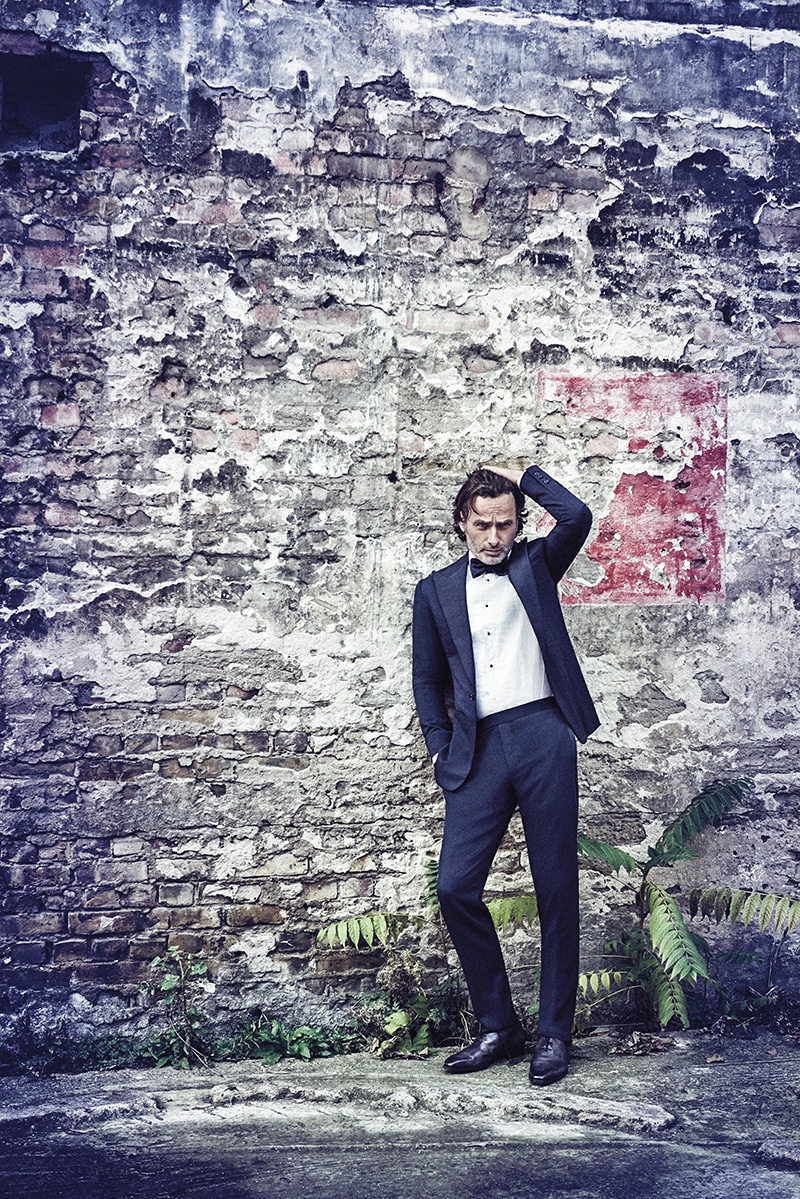
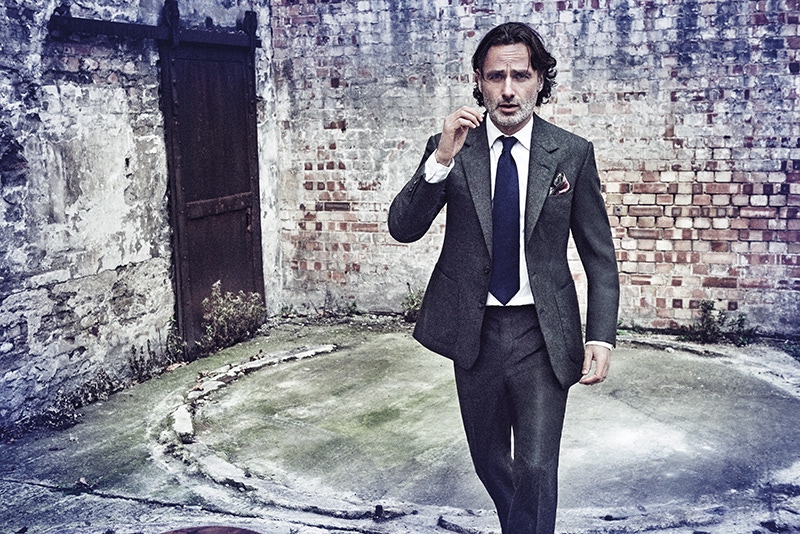
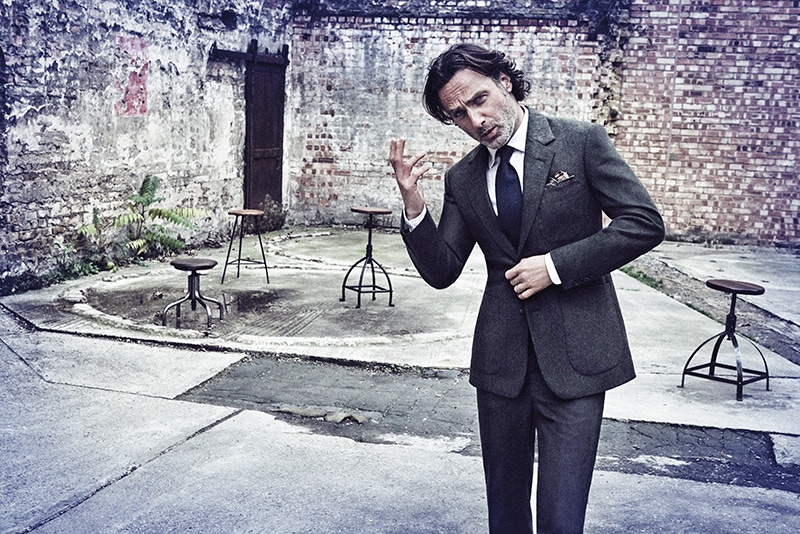
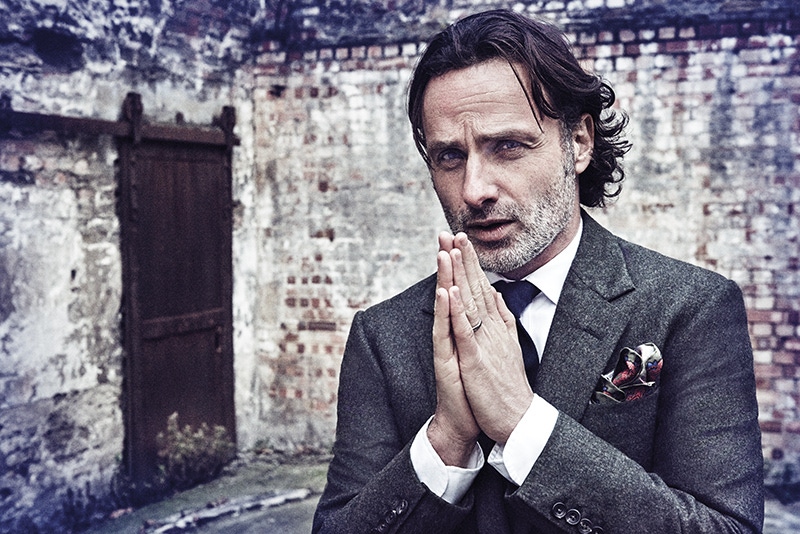
A Trojan horse
The more you intellectually and emotionally intertwine with The Walking Dead, the more you become aware of the multiplicity and complexity of its narrative palimpsest. And, like your first cruelly addictive taste of Grands Échezeaux, racing at light speed across your palate and triggering a tsunami of neural explosions, that narrative keeps going and going. “The Walking Dead is a Trojan horse,” Lincoln says. “What Frank Darabont wanted was to go into people’s living rooms under the guise of this B-movie genre, and then break people’s hearts with this Shakespearean, mythological tragedy.” In the last decade, the entertainment world has experienced something of an inversion. The medium of television, once considered the less sexy, less ambitious sister to cinema, has blossomed with concupiscent totality, eclipsing feature film. With shows such as Breaking Bad and Game of Thrones, it is television that has been the greatest catalyst to populist narrative evolution, often-times taking known and familiar genres and transforming them into nuanced high drama. “They talk about a sort of golden age of television,” Lincoln says. “You look at shows from The Sopranos to The Wire to ours. I think everyone is pushing the medium forward, and people recognise that if you have an engaging central cast, audiences will want to live with them for long periods of time. I think one of the great advantages of television over film is the idea that you don’t have to give everything right away, in that compressed two-hour period. You have time to have real character evolution. We get to transport people on this journey of lower and lower depths of moral ambiguity, and I don’t think people could stomach it if it were to happen in two hours. If you tried to compress the transformation Rick goes through in that time, it would be awful. It would be some terrible assault.” Another courageous decision made by the creators of The Walking Dead was to create all the show’s effects using real make-up, actors and stunts rather than relying on digital effects. Lincoln says: “There is an immediacy to the show that has to do with certain factors. The show was conceptualised to use almost no computer-generated effects. The zombies are played by real actors. These guys have it much worse than us. If you’re playing a zombie you’re in make-up for hours before principal photography starts. And finally we do real stunts, real fire effects, and I think it all adds to the feeling that what you are watching is tangible.”
The Walking Dead is also one of the remaining shows that shoot on film — 16mm, to be precise. And one of the highly original qualities of The Walking Dead is its capacity to communicate with an economy of film language. “That first episode Frank wrote is almost totally silent, but it has got such elegant and poignant storytelling,” Lincoln says. “I love the perpetual use of silence in the show. It is a very rare commodity in this kinetic, fast-paced, hyper-oral world we live in. There was a direction film and television were heading in that was related to bombastic, sensory overload. I thought it was very brave of Frank to create a show that was quiet. It is about getting back to great, classical storytelling and slowing things down. It’s hard sometimes because there is this pressure to speed things up, to give people more blood, more stunts, more action, but we’ve always fought against that.”
One of the best things about The Walking Dead is that it leaves you edified no matter how macabre the episode, as if it is single-handedly attempting to lift the aggregate level of populist culture. “I’ve come to understand the reason why people are engaged with us is because they are not patronised,” Lincoln says. “Particularly towards young people, there is this condescension in popular culture. People think that young people don’t get it. Of course they do! People ask, ‘What do you want your children to learn from you?’ I say, ‘I want to learn from my children’. I can’t wait to learn from them.”
He pauses for a moment to reflect. “If the show was just a slash-and-burn survival horror story, it would have died a natural death,” he says. “The fact that it isn’t has sustained it. People give us a lot of goodwill because they know we try things that are different; we are pushing boundaries all the time. It’s interesting, because in France people search a lot for metaphors related to the show. It’s the greatest compliment, because they are taking it seriously — and this is not a genre that was taken seriously before. Which is huge. There was a great journalist that said that when Rick was lost, ‘He becomes Job’. So there is a deeper resonance to this if you want to look for it. Shane [Walsh] and Rick are brothers. It’s clear they are Cain and Abel. It’s those very primal stories that chime with people. Interestingly, there’s a course in a California university called ‘The Morals and Ethics of The Walking Dead’. I want to guest-lecture there!”
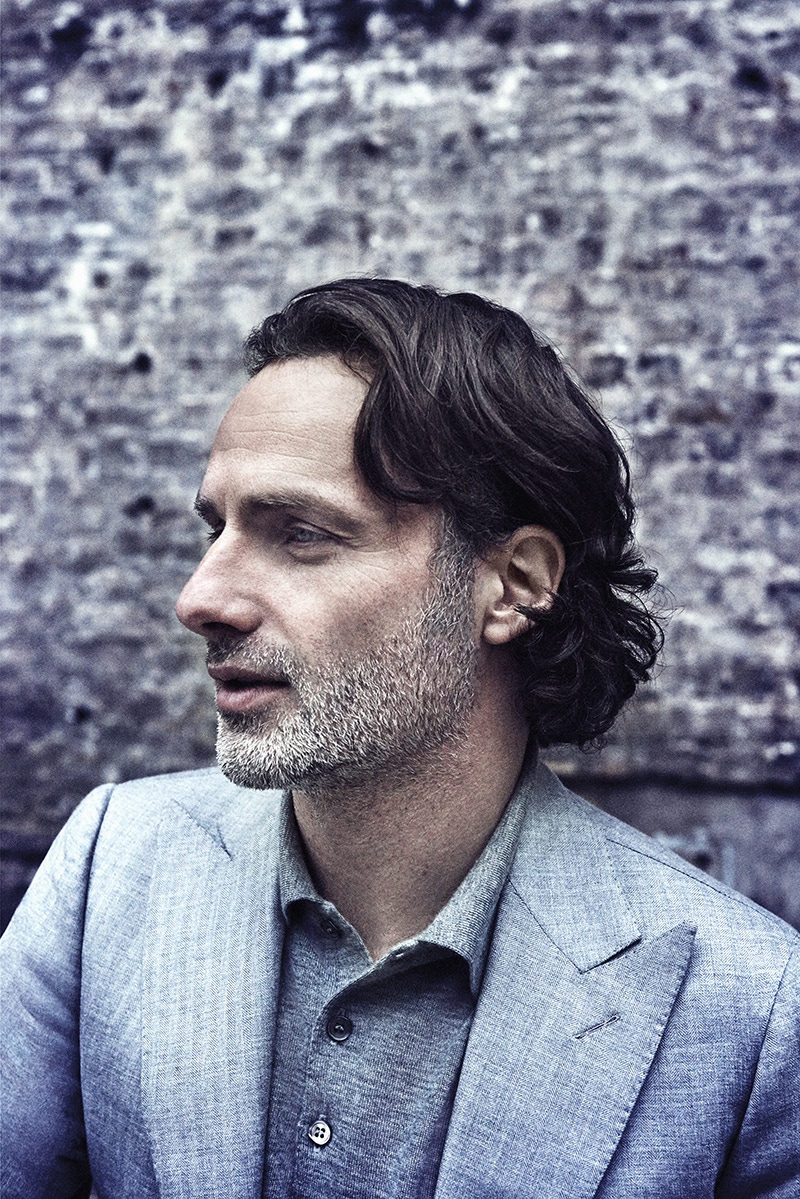
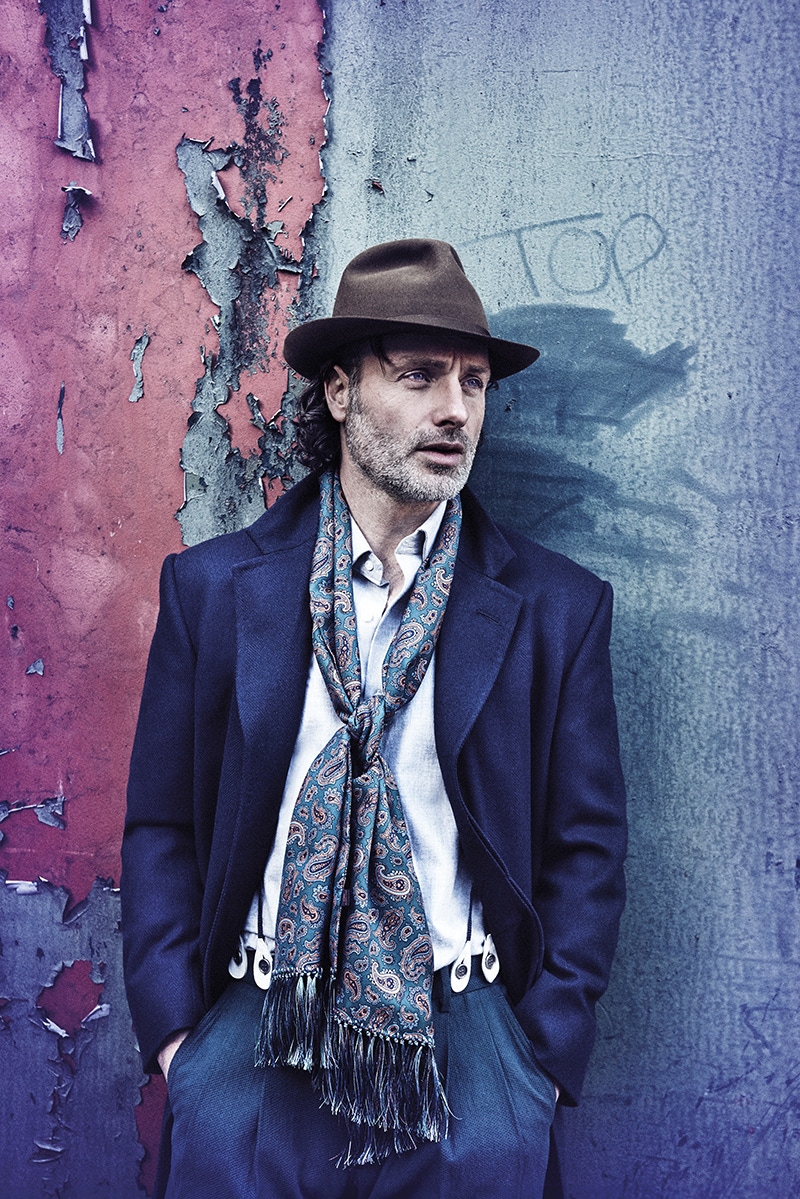
Family and tribe
The word ‘tribe’ comes from the Latin tribus, which was used to distinguish the three ethnic groups that made up ancient Rome: the Latins, the Sabines and the Etruscans. It is commonly used to distinguish a family or community linked by a common culture, language and value system. In The Walking Dead, with the onset of the zombie apocalypse, and the deracination of the nuclear family, what happens is that human beings form de facto families united by shared values, goals and interests. They go tribal. Each tribe’s collective value system is the reflection of one specific charismatic individual’s personal philosophy and moral structure, be it the morally conflicted Woodbury as a reflection of the Governor, the cannibalistic Terminus as a reflection of Gareth, or the humanist warrior philosophy of our protagonist group as a reflection of Rick’s internal value system.
“If you think about it, every communication between human beings is about wondering if we are the same tribe,” Lincoln says. “Every interaction is about, ‘Are we in the same value system?’ The more I travel the world the more I realise that everyone has the same desire. They want safety, security, love, and they want to feed and protect their children and their families. And that’s the premise of the show.” Lincoln continues: “Family is everything to Rick. If you stand beside him you are family, and if you stand in opposition you are a problem.”
When asked about how he selects members of the extended Andrew Lincoln tribe, he says: “I think you tend to collect friends that reflect your stage of development in life. Obviously, when you leave home it’s a very formative experience. I still have very strong friendships with people I went to drama school with.” And in life, just as in the zombie apocalypse, shared hardship has had a formative effect on Lincoln’s friendships. He explains: “There is nothing like fear to galvanise friendship. There’s nothing like doing a new play with Bill Nighy and Chiwetel Ejiofor and looking into another actor’s eyes when you have forgotten your lines. But to be able to have someone pull you through that, or to pull someone else through that, is an amazing lasting thing.”
As with Grimes, fatherhood has almost totally rewritten the rules for Lincoln in terms of whom he will admit into his inner circle. “When you have children there’s another hurdle you need to leap that relates to whether or not people are bringing their children up in a way you agree with,” he says. “And that is a minefield. There are people that might be good friends, but if they are not bringing up their children right, you just cannot hang with them.” Now that Lincoln’s primary role in life, when not slaying zombies, is that of a parent, he tries to commit as completely as he can to it: “With my children I try to be as present as I can be. Which is why I am here now, in the Cotswolds, rather than going on to the next job. It’s my number one job. Because for eight months of the year I have a very strict regime of zombie-slaying, and the apocalypse takes up a lot of my attention. So when I am with my children or even my friends I want to be totally present for them. I said to my agent the other day, ‘Apparently I’m living the dream. So could you please take it easy a little bit and let me have a bit of a life?’”
Lincoln loves the fact that his screen life is beamed into homes in 140 countries, and he never tires of exploring new cultures and adopting their customs. There is a great YouTube clip of him demanding the location of the lavatory on Japanese television, resulting from comical misinformation spread to him by co-star Norman Reedus. When asked where he gets his curiosity for the world around him, he says: “My mother and father brought me up to be curious. My mother was South African and my father British, and they always had people around the dining-room table, talking about politics and art and emotions. Not a typically British upbringing.” When asked if they were supportive of his career choice, he replies: “They didn’t want me to go into acting. When my father understood that this is what I wanted to do with my life, he gave me an ultimatum. He said, ‘Well, you have to get into five drama schools’. Which probably backfired on him because it meant that I worked really hard to try to get into five drama schools and neglected my A-levels. But that was his way of testing my resolve.”
When asked what values his parents passed on to him, Lincoln is quick to reply: “I think the two attributes my parents instilled in me would be compassion for others and a strong work ethic, which are the two most important things a parent could teach a child. And they’ve always been supportive of me, even though they thought my ambition was weird or foolish. But they’ve always encouraged me to try, to be committed, to be ambitious. I love to see that, I want to see people daring to look stupid. I want to see people putting themselves out there all the way, because when you risk everything sometimes you get this magic in a bottle.”
The woman in Lincoln’s life, his partner, co-conspirator, co- defender of the faith and mother of his son and daughter, is Gael Anderson. Her upbringing, like Lincoln’s, was unconventional, in her case because her father was one of the biggest rock stars on the planet: Ian Anderson, the frontman and flautist of Jethro Tull. Says Lincoln: “I met my wife when she was a P.A. on an episode of Teachers I was directing. I think the fact her father also worked outside of a conventional role — more than most, I hasten to add — makes her very sympathetic to what I do as well.” When asked if a Jethro Tull T-shirt was in his wardrobe before meeting his wife, Lincoln reveals: “I didn’t know his work as much as I do now. The first time I had lunch with him I remember I had a copy of The Times under my arm because I was trying to look as respectable as possible. I quickly recognised that this was not the right thing to do. He was more irreverent, intelligent and challenging than almost anyone I’d ever met. I remember I took Chiwetel Ejiofor as my date for the first Jethro Tull gig I saw. I remember the stage lights came on at Shepherd’s Bush Empire, and this man who I’d just had a very respectable lunch with was standing there on one leg, in tights, wearing a cod piece and playing the flute. And Chiwetel turned to me and said, ‘Are you seriously going to pursue this?’”
When asked what the most memorable moment with his father-in-law has been, Lincoln says: “My father-in-law is a great guy and we are very, very close. He’s such an impressive man. Talk about breaking genres. It’s funny, because shortly after I started dating his daughter he invited me round and showed me his collection of firearms. [Laughs.] I could possibly guess why. But it’s a good move, and I will be stealing that move from him when young men come over to take my daughter on dates. I will be dressed as Rick Grimes and wearing my red-handled machete when they rock up.”
"I started dating his daughter, he invited me round and showed me his collection of firearms"
Fame
What is Andrew Lincoln, the man, like? When it was determined The Rake team would interview him near his home in the Cotswolds, he said, “Let me know what train they’re on and I will come and pick them up”. When the magazine’s 6’5”, 240-plus- pound, perpetually ravenous editor remarked that he might be predictably peckish, a medium-rare cheeseburger soon found its way into his sizeable hands to be rapidly decimated like a zombie going through a fresh corpse. That’s Andrew Lincoln, a man who, despite being the lead in television’s most successful programme, is polite, generous, keenly aware of the needs of others, and decent to a fault. He is also a man who has managed to remain largely unaffected by his fame. Though it does put a smile on his face to recount: “The airport immigration officials in the U.S. are our fans. They’re, like, ‘Come on in, Rick Grimes’.”
He continues: “The show doesn’t belong to us; it very clearly belongs to the fans. I remember the first time I went to Comic Con, and I sat outside feeling sick. They’d just played the trailer, and within 30 seconds we heard this roar that came through the walls. It was this very visceral, profound and terrifying moment. And I realised at that instant that the show wasn’t ours any more. There is this very bright and very opinionated audience out there that wanted their story told right. And we are very fortunate in that they seem to like what we do.”
Regarding the lightning-quick derailment of his trajectory as journeyman classical actor to television megastar, Lincoln demurs. “I am fortunate that in my line of work I get to do things that are just crazy, absolutely bananas,” he says. “Opening the show at Madison Square Garden with 16,000 fans was just insane and an experience that was so unique. We felt the reaction to the show in the first season. And we thought we maxed out, but then it grew and kept growing. And then the rest of the world caught on to it as well. It’s been bewildering. When you go on holiday to Costa Rica and you make the national newspaper the moment you get to the airport, that’s crazy. Though in that case I think it was largely because of Norman Reedus.”
Asked if he’s experienced a downside to his success and recognition, he says: “Fame is a very strange, intoxicating thing ... but it is not real. It can be quite an overwhelming thing to experience. Especially with the fervour related to our show. I think it’s important to just enjoy the ride. I used to think you had to really present something when you meet the press. But then I realised I had already done my job by shooting the show. I just show up and say, ‘Yes, isn’t it great?’ I love my job and I’m thrilled to share the enthusiasm about our show with everyone. I’ve been doing this for 23 years. As I get older I try to be as honest and authentic as I can be. Because life is too short to keep playing parts. I already do that for a living.”
He reflects for a moment and adds: “My mother said an interesting thing when I was doing a television show called This Life. When there was the first sense I was being noticed on the street, my mother said, ‘Oh, I see, we have to share you with the world’. So I imagine my parents and my brother think what I do is quite odd but exciting. They told me, ‘It is actually quite thrilling to have a son that does something so outside of convention’.”
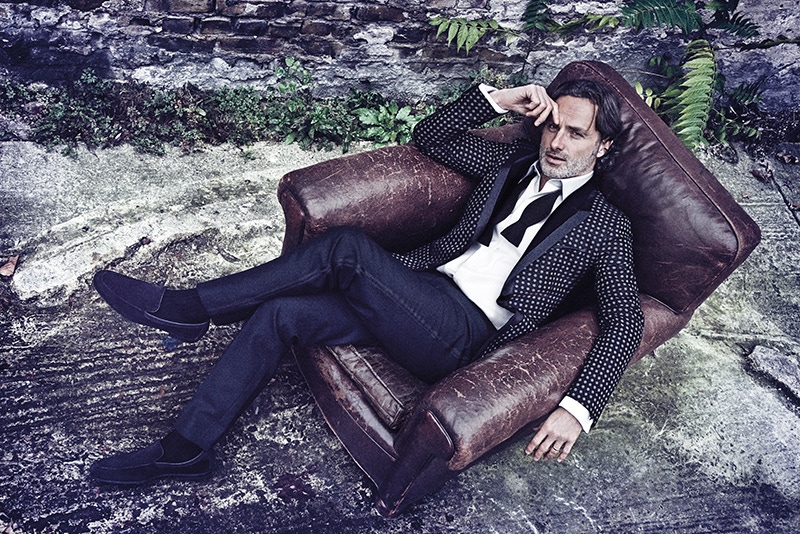
Picasso, Géricault and becoming Rick Grimes
Andrew Lincoln recalls that fateful day, the exact moment The Walking Dead came into his life. He says: “Well, I remember getting the script through the door. The first thing I did was look at the title, The Walking Dead, and I thought to myself, ‘How beautiful and elegiac.’ Then I saw that it was Frank Darabont and Gale Anne Hurd behind the project, and of course I was incredibly excited. Then I read the synopsis and it said, ‘Zombies, survival and horror’, and that’s when I called my agent and said, ‘Are you fucking kidding me? I am a classically trained actor and you sent me zombies?’ And he said, ‘Wait, give it a chance’. I read the three scenes provided and realised how well written the show was. So I put myself on tape. The next morning I got a call back from L.A. with a request to reshoot a scene with a couple of notes. Then Frank Darabont said, ‘I’d love to Skype with you’, and so we talked for an hour and a half. He said he wanted it to be Lord of the Flies. And we talked about these beautiful artworks, like Géricault’s The Raft of the Medusa and Picasso’s Guernica — images of survival and trauma, and I thought this was phenomenal.”"That’s when I called my agent and said, ‘Are you fucking kidding me? I am a classically trained actor and you sent me zombies?’ And he said, ‘Wait, give it a chance’."With more research, Lincoln came across the base material for the television series, and he sought to experience the comic. “I went to the Camden comic store and I asked the guy, ‘Have you heard of this thing called The Walking Dead?’ And he said, ‘Come this way’. Then he pointed and said, ‘There it is’. It was a wall of comics. I asked, ‘Which one is it?’ He replied, ‘It’s all of them’. Then I went out to L.A. So I get out there and I am totally jet-lagged, I hadn’t been sleeping a lot because I’d just become a father. I was anxious to get it right and not mess up. I’d done casting for networks before and sometimes there are a lot of execs there and you feel like you’re spinning a lot of plates for people. So I asked, ‘If I come out could we please just work on the script?’ Frank said, ‘Absolutely’, and he held true to that. Jon Bernthal had already been cast. He is one of the finest actors I’ve had the privilege of working with. I was doing this one scene in the car with him and I heard this snoring and I realised I’d sent Boss, Jon’s pitbull, to sleep with my acting.” His somnolent effect on canines aside, Darabont and Hurd soon realised they’d found their lead in the earnest, quietly charismatic and, yes, classically trained Lincoln. He recalls: “They were very sweet. They made the decision very quickly, and they told me within 12 hours of me touching down that I had the part.” When he was cast, Lincoln had just become a father, and with it he was experiencing the radical realignment of values that fatherhood can bring. He says: “I could relate to Rick as a father. I was going through as a man very much what he was going through as well.” When queried if his relative anonymity in the U.S. at the time could have been a motivating factor for Darabont’s selecting him, Lincoln says: “I think the fact that all of us were little known added to the ‘everyman’ effect, and I think that’s one of the major reasons they picked me. Then my brother called me up and he said, ‘I’ve been researching this thing online. You better not fuck this up, this is big!’” Cut to six years later. Andrew Lincoln, much to his brother’s relief, did not fuck it up. Instead, Lincoln created one of the most identifiable characters in popular culture, imbuing him with a sense of personal dignity that is inextricably linked with himself as a man. Interestingly, when asked if at any point in the past six years he felt the fear of fucking it up, Lincoln says: “You know, I think my experience on this planet is all about continual failure. There’s that saying, ‘Fail, fail again, fail better’. It’s how great achievements come about. It’s how everything significant in medical advancement has come about.” And it is in that capacity, to fail and get better, that Lincoln is most aligned with the beautifully flawed leader he plays. He adds: “I understand why my brother told me not to fuck this up. But at the same time my brother is a teacher and headmaster and speaks at length about the fear of failure. And I think that one of the great freedoms I discovered as an actor was when I stopped worrying about failure and trusted my instincts and stopped caring about how I looked. A lot of people look at me and my process and say, ‘You’re mad’, because I do a lot of things that stop me from feeling fear. I’ll sing or I’ll do stupid things just to break the spell, to stop worrying about the 250 people that are all watching me, waiting for me to nail a huge emotional scene. So I take myself away and get myself into a zone that isn’t afraid of failure. I think some of the most exciting times I’ve had on this job is when I walk away from a great scene and I don’t know what’s just happened. And if I’ve achieved a certain fearlessness, I hope that’s something I can impart to my children.”
When asked if this freedom he’s found is decidedly un- British in its exploratory, balls-to-the-wall, no-holds-barred nature, Lincoln says: “Look, I do agree that there is a tradition of training in our country. But I also think there are great attributes about not being trained as well. For example, when working with Norman Reedus, who is an instinctive actor, I realise that acting in America is amazing because nothing feels set. Sometimes in England, because people are so technically proficient, they end up repeating themselves.”
It is for that reason that Lincoln, one of the most-watched men on the planet, has refused to watch any of his own performances in a decade and a half. Not one. Zero. Zip. Nada. He explains: “I haven’t watched myself on screen for 15 years, because it’s just not an enjoyable experience. It is not helpful for me. I had to do some A.D.R. [automated dialogue replacement] a few nights ago. The sound guys, who are brilliant, know how hard it is for me to stand there and look at myself, and they go out of their way to make sure I don’t have to do a lot of A.D.R.” Was there a specific moment he decided to stop watching his own performances? “I stopped watching myself because I would see myself falling into a pattern of doing certain things that I knew would work, and I said I don’t want to do that. I can’t be lazy. I don’t want to reference myself. Because then you turn into an actor that’s always using tricks, or, worse than that, a clever-type of actor, and your performance stops evolving, you stop growing. That is not what I enjoy watching, and certainly not what I want to be. I don’t like looking at myself because I don’t want to have that repetition. When I work in America it doesn’t feel like there is a set place we are trying to head for. We are experiencing things together and discovering where that will take us together. So I think I’m a lot freer as a result of working in America and working with American actors, because for them acting is exploration — it’s about freedom and discovery.”
Finally, when asked if he feels that the poignant oeuvre that is The Walking Dead will be the be-all and end-all legacy of his theatrical career, Lincoln says: “You know I could never opine about if our show will be one of those that endures and remains relevant beyond its time. That’s not something I could speak on. But I do think it is greater than the sum of its parts. Far more than my efforts, it is a combination of great storytelling, great cast, great directing, challenging editorial decisions, great effects, and stunts and courage and originality. Sometimes with that alchemy you get gold. I am old enough to know that you can read a great script and sometimes it just doesn’t become a great film or show. Sometimes it just doesn’t go that way. Material takes on a life of its own. And a very specific set of circumstances needs to be present to uplift that material into something extraordinary.”
The Walking Dead is just that. An extraordinary narrative entity that is far more than the sum of its parts. And it is clear that the man who is possibly the most instrumental part of that equation agrees.
Photography by Ruven Afandor & fashion direction by Sarah Ann Murray.

